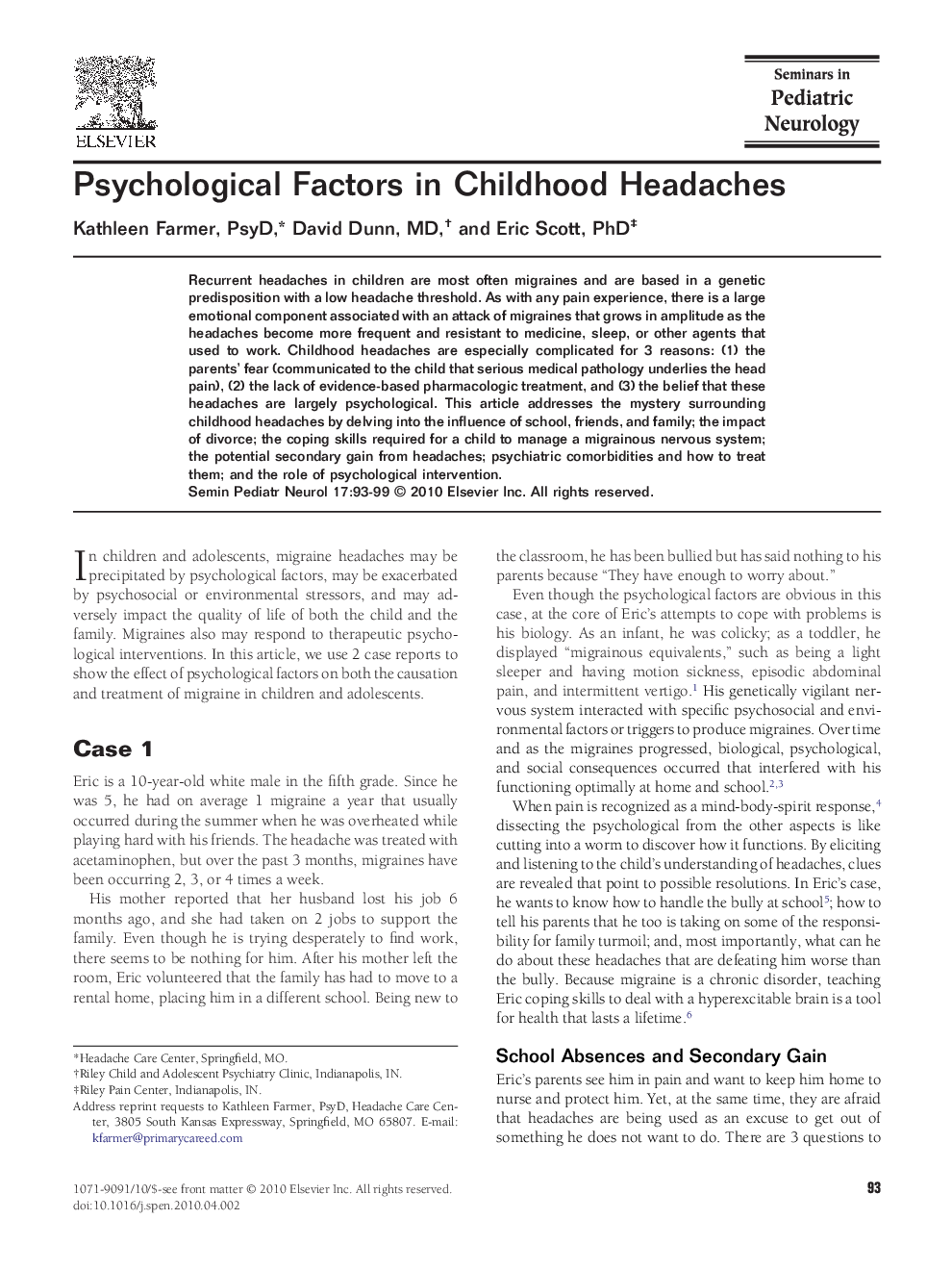| Article ID | Journal | Published Year | Pages | File Type |
|---|---|---|---|---|
| 3090976 | Seminars in Pediatric Neurology | 2010 | 7 Pages |
Abstract
Recurrent headaches in children are most often migraines and are based in a genetic predisposition with a low headache threshold. As with any pain experience, there is a large emotional component associated with an attack of migraines that grows in amplitude as the headaches become more frequent and resistant to medicine, sleep, or other agents that used to work. Childhood headaches are especially complicated for 3 reasons: (1) the parents' fear (communicated to the child that serious medical pathology underlies the head pain), (2) the lack of evidence-based pharmacologic treatment, and (3) the belief that these headaches are largely psychological. This article addresses the mystery surrounding childhood headaches by delving into the influence of school, friends, and family; the impact of divorce; the coping skills required for a child to manage a migrainous nervous system; the potential secondary gain from headaches; psychiatric comorbidities and how to treat them; and the role of psychological intervention.
Related Topics
Life Sciences
Neuroscience
Developmental Neuroscience
Authors
Kathleen PsyD, David MD, Eric PhD,
